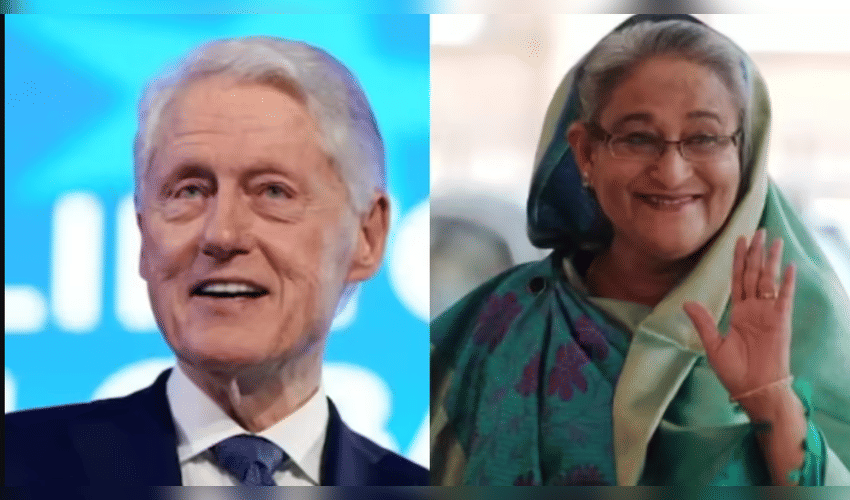Asia In News
Sheikh Hasina Aide Unveils 'Clinton-Yunus' Nexus and Accuses USAID of Bangladesh Regime Change
Published On Mon, 10 Nov 2025
Fatima Hasan
8 Views

A recent explosive claim by a close aide of former Bangladesh Prime Minister Sheikh Hasina alleges a deep involvement of the US government agency USAID and the Clinton family in orchestrating the 2024 uprising that led to Hasina’s ouster. Mohibul Hasan Chowdhury, who served as a minister under Hasina, accused USAID and Western-backed NGOs of running sustained campaigns since 2018 to destabilize the Hasina government. He further alleged a longstanding nexus between USAID, the Clinton family, and Nobel laureate Muhammad Yunus, who led the interim government after Hasina’s departure.
Chowdhury described the unrest leading to Hasina’s fall as a carefully planned operation rather than a spontaneous revolution. He asserted that USAID funds were funneled through clandestine NGOs to back the regime change agenda, tying the Clinton family’s political influence to Bangladesh’s internal political upheaval. This claim is underscored by Hasina’s own past accusations against Yunus, whom she accused of selling the nation to the US, contrasting sharply with her father Sheikh Mujibur Rahman’s earlier refusal to acquiesce to US demands, including over territorial issues related to St Martins Island.
The fallout of the 2024 protests was severe, with violence claiming over 700 lives and Hasina fleeing the country. Yunus subsequently took over as the interim government chief amid accusations of being a US-backed proxy. Such revelations highlight the complex intersection of international diplomacy, foreign aid, and domestic politics in Bangladesh’s volatile political landscape.
This situation draws parallels to broader concerns about how international development aid can sometimes be entangled with geopolitical strategies, influencing regime stability in vulnerable nations. For example, throughout history, agencies like USAID have been accused of supporting political movements aligning with US interests in countries like Nicaragua and Venezuela. Bangladesh’s case now possibly adds another chapter to this pattern, raising questions about sovereignty, external interference, and the integrity of democratic processes.
These allegations from a close Hasina aide open a wider debate about the role of foreign players in Bangladeshs political transformations. The ties between USAID, the Clinton family, and Yunus paint a picture of foreign influence operating behind the scenes, shaping the country’s governance and political fate. Whether these claims will lead to substantive investigations or policy shifts remains to be seen, but they certainly cast a shadow on the narrative of Bangladesh’s 2024 political crisis.
Disclaimer: This image is taken from Times of India.



